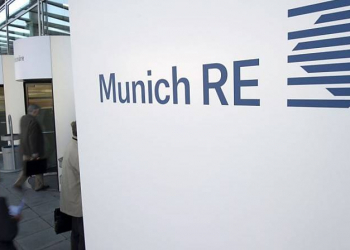The FINANCIAL — Companies will need to account for greenhouse gas emissions produced by their entire resource ecosystem under new climate reporting metrics and targets proposed by the International Sustainability Standards Board (ISSB), its Chair, Emmanuel Faber, said.Announced at COP26, the ISSB is tasked with developing the International Financial Reporting Standards’ Sustainability Disclosure Standards, according to UKRI.
Speaking at the first of the Wheeler Institute’s ‘Towards net zero’ event series webinars hosted by LBS Professor of Economics Lucrezia Reichlin, Mr Faber said the board was there “to serve the needs of market participants.”
“Our primary users are investors and other providers of financial resources to corporates and microeconomic entities,” he said.
“We also recognise that there is a broader, secondary user population which is important but comes as a priority number two … and among them there are central banks, for instance.”
Mr Faber said the ISSB was also focussed on enterprise value, material information.
“What we call ‘material’ is information that, in the absence of which, an investor might not make an informed decision or, if it had had this information, it might have made a different decision in terms of resource allocation.”
Mr Faber said the core of the ISSB’s mission was to create metrics and standards of disclosure that moved market prices.
“We’re not looking at creating disclosures that have political impact. This is for jurisdictions themselves to decide,” he said.
“What we do is really about moving the capital allocations, giving investors enough information, the right information they need to make informed decisions about financing the transition or the sustainability of the business models of the entities in which they invest.”
Mr Faber said companies would be required to report both their direct and indirect greenhouse gas emissions, referred to as Scope One, Two and Three.
“Scope One is the emissions of a business in its own operations, your factories, your trucks, your offices, the energy you use, and what it takes to build a factory etc.
“Scope Two is the emissions related to the energy that you use in your system.
“Scope Three is anything which is out of your business, but on which you rely, your resource ecosystem … If you are car manufacturer, the gasoline that goes into the tanks of the cars is in the Scope Three for a car manufacturer,” he said.
The Wheeler Institute’s ‘Towards net zero’ series explores how public and private institutional investors can restructure capital offerings and risk management processes to reflect climate forces. Professor Reichlin will be joined by Sir Ronald Cohen, Chairman of the Global Steering Group for Impact Investment, at the next event on Thursday, 17 March 2022. Register for free.


































Discussion about this post